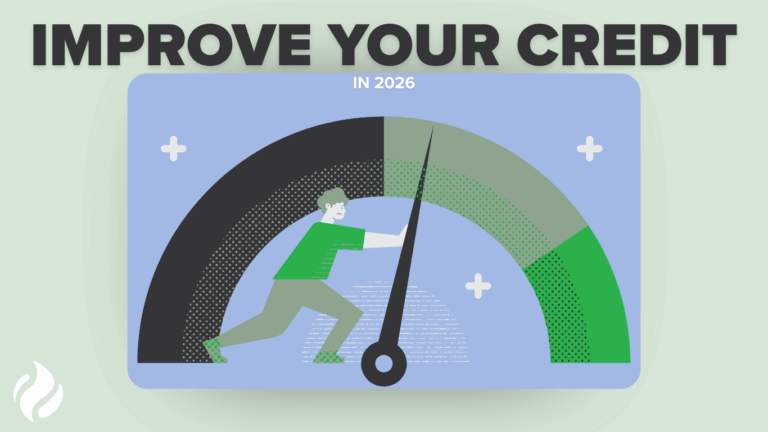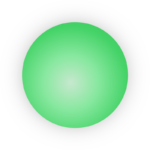Dc Connector: The Direct Current Plug Plays A Vital Role In The Operation Of Solar Panels By Facilitating The Transfer Of Power
Embracing the Variety of DC Connectors
Ever wondered how solar panels harness sunlight and convert it into usable energy? The answer lies in the DC connectors. But wait, are all DC connectors the same? Not at all! Let’s dive into the world of DC connectors in solar panels.
MC4 Connectors
These are the most common connectors you’ll encounter when dealing with solar panels. Why the popularity? The MC4 connector’s watertight design and secure locking mechanism make it a favorite among solar panel enthusiasts. But remember, they’re not the only fish in the sea!
SAE Connectors
Enter the SAE connectors, a staple in the automotive industry. Guess what? They’ve found a place in the solar panel industry too! Their versatility and ease of use make them a go-to for smaller solar panel systems. Who said you can’t teach an old dog new tricks?
XT Connectors
Often seen in the RC hobbyist world, XT connectors have extreme ampacity capabilities, making them suitable for heavy-duty solar panel systems. But remember, with great power comes great…need for proper handling.
Anderson Powerpole Connectors
Last but not least, we have the Anderson Powerpole connectors. Known for their modularity, these connectors can be assembled in various configurations to meet the demands of complex solar panel systems. Isn’t it fascinating how much can hinge on a small piece of tech?
- MC4 Connectors – Common and reliable
- SAE Connectors – Versatile and user-friendly
- XT Connectors – High power handling
- Anderson Powerpole Connectors – Highly modular
Function and Use of DC Connectors
DC connectors, also known as coaxial power connectors, play a pivotal role in the world of solar energy. But how exactly do they contribute to this renewable energy source? And what makes them indispensable?
The Essence of DC Connectors
DC connectors are the workhorses of solar panel systems. These unsung heroes ensure that the energy harnessed from the sun is securely transferred to your devices. Their primary function? To convert DC power from the solar panels into a form that your household gadgets can utilize. Is it not fascinating how these tiny components can hold such critical responsibility?
DC Connectors in Solar Panel Systems
Imagine your solar panel system as a massive orchestra, and the DC connectors are the conductors. They guide the current, making sure that the energy flows in the right direction. Without them, the power from the sun would be just like an untamed river, flowing without purpose. The solar panels harness the sunlight, but it’s the DC connectors that channel this raw energy into something useful.
Significance of DC Connectors
- Security – DC connectors ensure a secure connection, preventing accidental disconnection or loose wires, which can be hazardous.
- Variety – Available in multiple sizes and designs, DC connectors cater to a range of devices and applications.
- Efficiency – These connectors aid in maintaining the efficiency of the solar panel system by minimizing power loss.
In conclusion, the DC connectors might not be the star of the solar power show, but they are undoubtedly the backbone. They ensure the smooth operation of your solar panel system, turning the sun’s energy into power for your home. Are we not thankful for these diligent, silent workers?
Understanding the Basics
DC connectors, a vital element in solar power systems, are not just plug-and-play devices. Ever wonder why specific protocols are followed during their installation?
Installation Guidelines
- Ensure proper polarity: DC connectors are polarity sensitive. Incorrect connection can lead to system failure. A simple rule of thumb? Red for positive, black for negative.
- Choose the right connector: Not all DC connectors are created equal. Different systems require different types. Ever tried fitting a square peg in a round hole?
Appropriate Usage and Maintenance
Have you ever considered the importance of regular maintenance? Just as you wouldn’t drive a car without regular oil changes, DC connectors also require periodic checks. This is not just about troubleshooting – it’s about ensuring the electrical efficiency of your solar power system.
Safe Disconnection and Reconnection
Disconnecting or reconnecting DC connectors while under load can cause arcing, which may damage the connector. Remember, safety first!
Wrapping It Up
DC connectors might seem like a small component, but they play a crucial role in your solar power system. So, next time you’re installing or maintaining your DC connectors, remember these guidelines. They might just save you from a world of trouble. Can you imagine the satisfaction of a job well done?
Maintenance of DC Connectors
Regular maintenance of DC connectors is pivotal to prolong their lifespan. Ever wondered why some DC connectors outlast others? It’s all about the care and maintenance. A simple wipe down can prevent dust accumulation, which can cause overheating and subsequently, connector failure.
Cleaning DC Connectors
DC connectors should be cleaned using a mild solution of water and isopropyl alcohol. Avoid using abrasive materials or excessive force that could damage the connectors. Remember, gentleness is key! Can you imagine cleaning a baby’s face with a scrub brush? Of course not! The same principle applies here.
Troubleshooting DC Connectors
Encountering issues with DC connectors on solar panels? Don’t panic! Start by checking for visible signs of damage. A physical inspection can reveal issues such as corrosion, which might be the culprit. If it’s not a visible problem, then it might be an electrical issue. But before you start feeling like you’re in an episode of Sherlock Holmes, remember that multimeters are your best friend in these situations.
Using a Multimeter
A multimeter can help determine if there’s a continuity problem within the DC connector. It’s like a doctor’s stethoscope, but for solar panels. But, what if the multimeter reads fine, and the problem persists? Perhaps it’s time to call in the professionals or consider a replacement. After all, not all battles can be won single-handedly, right?
Safety Precautions with DC Connectors
DC connectors, the lifeline of solar panels, demand stringent safety precautions. Remember the time when you were a child, playing with a battery and a small bulb? The thrill of lighting up the bulb with the DC power from a small battery was unforgettable, wasn’t it?
But as we grow up and the toys become more complex, the game changes. The DC connectors used in solar panels are not toys. They handle high levels of power and if not handled properly, can lead to dangerous situations. But, how can we ensure safety while dealing with these DC connectors?
Right Equipment
Just as a knight wouldn’t go into battle without his armor, one shouldn’t work with DC connectors without the right safety equipment. This includes insulating gloves, safety glasses, and sturdy footwear. After all, isn’t it better to be safe than sorry?
Proper Handling
DC connectors are not to be yanked, twisted, or mishandled in any way. They’re not as forgiving as that childhood toy. They demand respect and careful handling. Any careless action can result in a safety hazard.
Regular Maintenance
Like most things in life, DC connectors are not immortal. They degrade with time and use. Regular maintenance and checks for wear and tear are essential. Remember, a stitch in time saves nine.
So, let’s treat these DC connectors with the respect they deserve. Let’s follow these safety precautions and ensure a safe and efficient solar power system.
DC Connector
/ˌdiːˈsiː kəˈnɛktər/
A DC connector is an electrical connector used for supplying direct current (DC) power. The connectors come in a variety of sizes and styles, each designed to provide a secure, reliable connection for the transfer of DC power. They are commonly found in many types of electronic devices, such as laptops, cameras, and power adapters.
Etymology
The term “DC connector” is derived from the term “direct current”, which refers to the unidirectional flow of electric charge. The word “connector” is used to denote a device that allows two or more electrical components to be joined together.
Types of DC Connectors
There are many types of DC connectors, each designed for specific applications. These include barrel connectors, automotive connectors, and DC power jacks, among others. The type of connector used depends on the requirements of the device, including the voltage and current, the physical design of the device, and any safety considerations.
Usage
DC connectors are used in a wide range of electronic devices to supply power. They are typically used in low-voltage applications, such as battery chargers, power adapters, and portable electronic devices. The connectors provide a simple, reliable method of connecting a power source to a device.
For more information about Dc Connector contact Lumina Solar today.
Useful Links
Solar Panel, Solar Thermal Collector, Solar Thermal Energy, Sunlight, Electricity, Photovoltaic, Electrons, Direct Current, Battery (Electricity), Photovoltaic System, Solar Inverter, Alternating Current, Charge Controller, Measuring Instrument, Solar Tracker, Solar Farms, Rooftop Solar Power, Grid-Connected Photovoltaic System, Greenhouse Gas Emissions, Home Energy Storage, Timeline Of Solar Cells, Selenium, Silicon, Micro-Inverter, Solar Cell, Pv System, Photon, Photovoltaic Effect, Wafer (Electronics), Crystalline Silicon, Thin Film Solar Cell, Dead And Live Loads, Series And Parallel Circuits, Electric Power, Watt, Voltage, Volt, Electric Current, Ampere, Electrical Load, Junction Box, Mc4 Connector, Usb Power, Power Inverter, Battery Pack, Solar Tracking, Maximum Power Point Tracking, Power Optimizer, Solar Performance Monitor, Thin-Film Solar Cell, Solar Cells, Polycrystalline Silicon, Monocrystalline Silicon, Cadmium Telluride Photovoltaics, Copper Indium Gallium Selenide Solar Cell, Amorphous Silicon, Third-Generation Photovoltaic Cell, Multi-Junction Solar Cell, Compound Semiconductor, Gallium Arsenide, Concentrator Photovoltaics, Thin-Film Silicon, Cigs Solar Cell, Thin-Film, Rooftop Solar Pv, Thin Film, Nanometers, Micrometers, Silicon Wafer, Copper Indium Gallium Selenide Solar Cells, Multi-Crystalline Silicon, Solar Pv Systems, Perovskite Solar Cell, Dye-Sensitized Solar Cell, Quantum Dot Solar Cell, Organic Solar Cell, Czts, Building Integrated Photovoltaics, Transparency And Translucency, List Of Photovoltaic Power Stations, Photovoltaic Power Stations, Environmental Issues, Renewable Energy, Non-Renewable Energy, Electricity Generation, Heavy Metals, Solar-Cell Efficiency, Photoelectric Effect, Accelerated Life Testing, Growth Of Photovoltaics, Utility-Scale Solar, Lens (Optics), Angle Of Incidence (Optics), Anti-Reflective Coating, Destructive Interference, Alternating Current, Microinverter, Ac Power, Dc Connector



